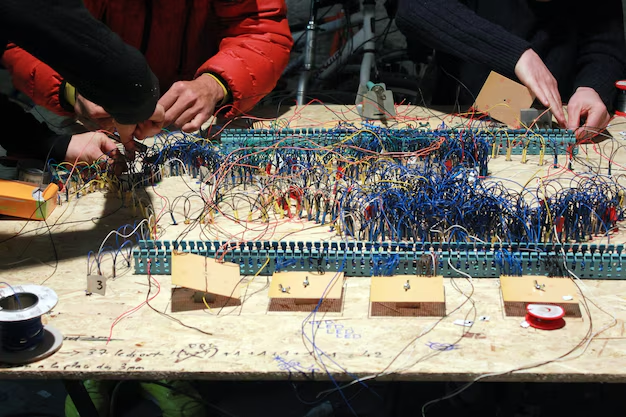Your Path to Becoming a Licensed Electrician: Steps and Resources
The demand for skilled electricians is robust, making it a lucrative and stable career choice. To become a licensed electrician, however, requires a structured approach that combines education, hands-on experience, and passing required examinations. Here’s how you can navigate the journey to becoming a licensed electrician.
Step 1: Obtain a High School Diploma or Equivalent
Before embarking on a career as an electrician, it’s essential to have a solid foundation in mathematics, physics, and other practical sciences, which are usually part of a high school's curriculum. Completing this step is crucial as it prepares you for more specific technical training.
Step 2: Apply for an Apprenticeship
Entering an apprenticeship program is perhaps the most critical step toward becoming a licensed electrician. Apprenticeships are typically offered through trade schools, unions, or contractors. They combine classroom instruction with practical on-the-job training. These programs last between four to five years and cover essential areas such as electrical code requirements, blueprint reading, and safety practices.
Tips for Securing an Apprenticeship:
- Apply through unions such as the International Brotherhood of Electrical Workers (IBEW), which offer structured programs.
- Check local trade schools for their specific offerings and partnerships with local contractors.
Step 3: Apply for a License
Depending on your state, obtaining a license as a journeyman electrician may require completing your apprenticeship and passing a state-specific exam. These exams usually test your knowledge of the National Electrical Code (NEC), electrical concepts, and safety regulations.
Step 4: Continue Your Education and Training
Electricity is a dynamic field with constantly evolving technology and regulations. Continuing education keeps you updated and may also be a requirement for renewing your license. Consider enrolling in courses or seminars offering specialized training for high-demand areas like solar power installation or advanced electrical systems.
Leveraging Financial Assistance and Resources
Pursuing a career as an electrician often involves educational costs, whether it’s a certification program or an apprenticeship. Fortunately, a variety of financial aid options exists to ensure that education and training are accessible.
- Pell Grants: Available for low-income students, these grants do not need to be repaid and can be used for eligible trade programs.
- Federal Work-Study Programs: Offers part-time work that helps finance education costs.
- Scholarships for Trade Schools: Many organizations provide scholarships specifically for students entering trades.
Explore Additional Support Through Credit Solutions and Government Aid
For those balancing education with other financial commitments, additional resources such as credit card solutions and government aid may be beneficial. Programs like these can help mitigate the financial strain associated with career advancement.
- Credit Counseling Services: These services can assist in creating manageable repayment plans for educational expenses.
- Income-Driven Repayment Plans: Federal student loans offer flexibility aligned with your income level, reducing immediate financial pressure.
Paving your path to becoming a licensed electrician not only ensures professional growth in a pivotal industry but also opens doors to numerous financial support opportunities for a sustainable career. Below is a compilation of valuable financial and educational resources to consider:
Financial and Educational Resources for Aspiring Electricians
- 🏆 Pell Grants: Non-repayable aid for eligible students.
- 🛠️ Union Apprenticeships: Paid on-the-job training and instruction.
- 🎓 Trade School Scholarships: Financial support specifically for vocational training.
- 💳 Credit Counseling Services: Manage and plan educational expenses effectively.
- 💸 Income-Driven Repayment Plans: Tailor federal student loan repayments to your earnings.
- 📚 Continuing Education: Stay updated with advancements in electrical technology.
Embrace these resources and pathways to ensure your success as you electrify your career prospects!

